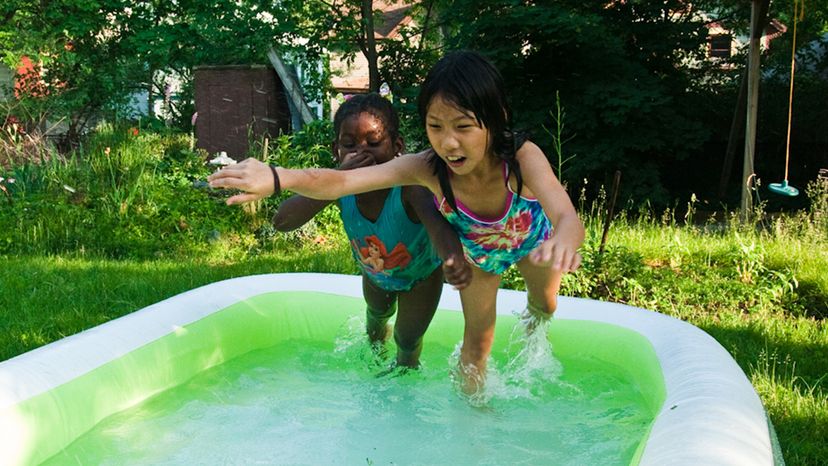Shouldn't simply adding a few drops of chlorine make pool water safe for swimming? The answer, unfortunately, is more complicated than yes or no.
When chlorine is added to inflatable pool water with ideal pH levels, it will kill most germs — including E. coli — in less than an hour.
However, not all germs are killed by chlorine in the same amount of time. There are germs that take longer to kill, like cryptosporidium, which takes about 15,300 minutes (the equivalent of 10.6 days). Giardia, a parasite that causes painful abdominal cramps and persistent diarrhea, takes about 45 minutes to eradicate. The hepatitis A virus can remain active in pool water for more than 15 minutes after being treated with chlorine.
There's also the matter of achieving a correct pH and disinfectant level, two factors that go hand-in-hand. The ideal pH for killing germs is between 7.2 and 7.8 parts per million, according to the CDC. This range also makes the water more comfortable for swimmers' eyes and skin, which can be irritated by too much chlorine. Too little chlorine and the disinfectant's germ-killing abilities become limited.
"In my experience, it's really, really difficult to balance the pH of an inflatable pool," Bailey says. "I have to check the levels and adjust them constantly. I 'shock' the pool once per week with a larger dose of chlorine, although the manufacturer recommended doing it once every two weeks, because algae kept growing excessively. I also use a manual pool skimmer to fish out debris. And sometimes, if all else fails, the pool needs to be drained."
Periodically draining an inflatable swimming pool and letting it dry in the sun for a few hours not only provides a fresh start when you're ready to refill it, but is key in preventing mosquito outbreaks. Moving water keeps mosquitoes from laying eggs (they prefer still water for their nurseries), so consider a portable fountain if you'll be keeping water in the pool for more than a day or two.
